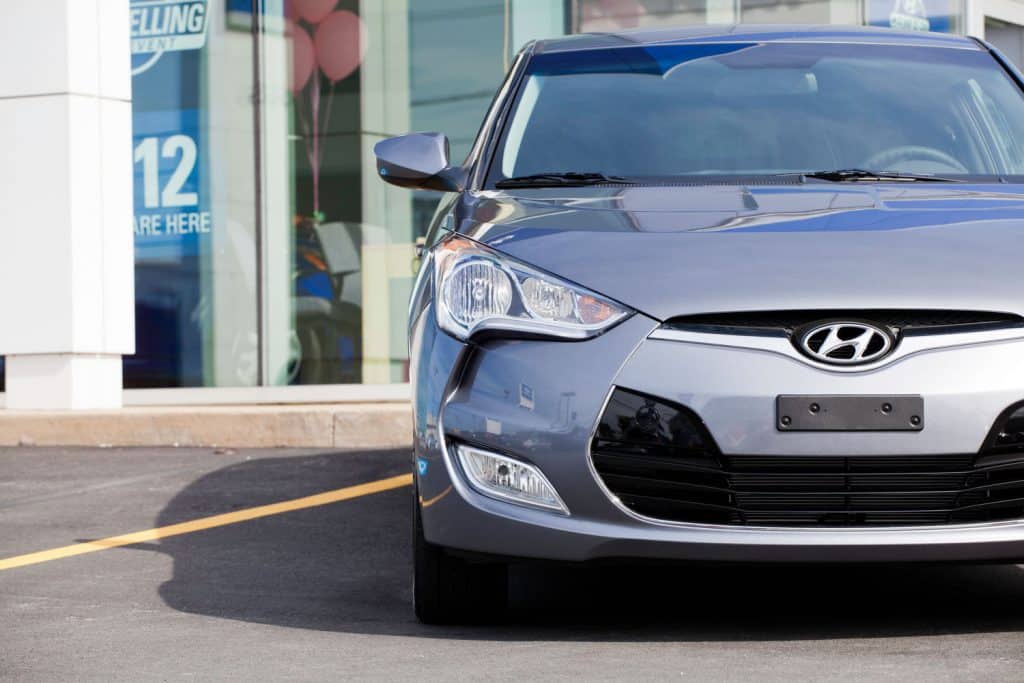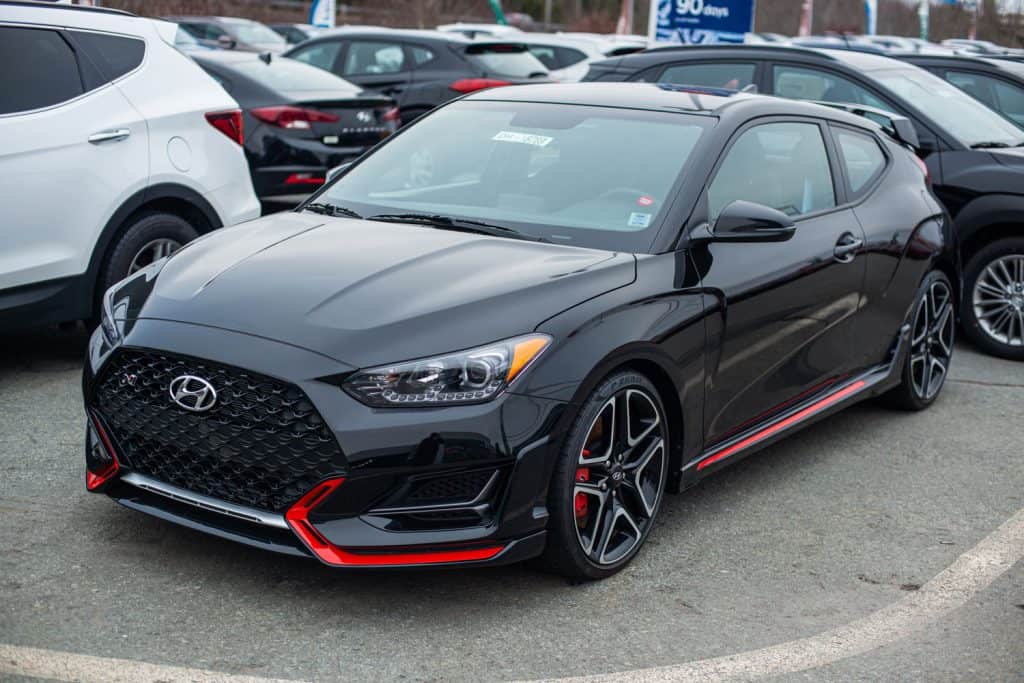The ability to drive a vehicle long after you pay it off can really make a huge difference in how you are going to be able to handle other expenses in your budget. If you are considering purchasing a Hyundai Veloster, knowing how long this vehicle can last you is critical to your long-term budget. We researched this popular car from numerous professional sources so that you will know if the Veloster is right for you.
The Hyundai Veloster can last upwards of 200,000 miles. As the average driver puts 15,000 miles per year on their vehicle, this means the Veloster will last up to 13 years. In order to reach these milestones, it's important that you:
- Have routine maintenance performed on your Veloster
- Drive your Veloster with care
- Immediately have your Veloster serviced if it shows signs of a mechanical issue
Now that we know how long a Hyundai Veloster can last you, we'll look more closely at the things you need to do to get it there. You might also be wondering if the Veloster is a reliable vehicle or if they hold their value. Is the Hyundai Veloster fast? Did Hyundai stop manufacturing the Veloster? For the answers to these questions and more, read ahead in this post to see what our research has presented.

How to make your Hyundai Veloster last
No vehicle will run well or last long if you don't take certain steps and precautions. Take care of your Veloster, and it will stay on the road for a long time. Let's look at the most critical pieces in getting the Veloster to the 200,000-mile mark.
Stick to the Maintenance Schedule
Your Veloster has a routine maintenance schedule that the manufacturer has laid out. You must follow each item on this schedule as close as possible. Failure to maintain the Veloster will result in poor performance and expensive damage to its vital parts. In addition, the useful life of the Veloster will be severely diminished.
Routine oil and oil filter changes are some of the most critical pieces of routine maintenance. Hyundai recommends that the synthetic oil be changed every 7,500 miles or every 12 months, whichever comes first. Fresh oil ensures that parts stay lubricated and running smoothly.
In addition to oil and oil filter changes, you'll want to be certain that you get your Veloster's tires rotated, air and fuel filters changed, and other wearable parts routinely inspected. Brakes, struts, and other parts won't last forever, but you should still check them on a regular basis to be certain that they are wearing at a normal rate.
Drive the Veloster with Care
How you drive your Veloster will also impact how long it will last. Avoid as much "stop and go" driving as possible. Don't mash on the accelerator or slam on your brakes as a way of routine driving.
Make sure you keep the car clean inside and out, as the buildup of dirt and grime will eat away at your paint and undercarriage. Dirty interiors shorten the lifespan of the cabin air filters and make them less effective.
Don't Ignore Potential Issues
While maintenance is great for identifying potential mechanical issues that are on the horizon, they won't catch everything. Problems with your vehicle might present themselves in the form of irregular noises or odors.
If you notice anything out of the ordinary, get your Veloster in to see the dealership or a mechanic. This could mean that a serious issue is building, and you might be able to fix it before it gets worse.
Is Hyundai Veloster a Reliable Car?
With the potential of exceeding 200,000 miles, the numbers point to the Veloster being a very reliable vehicle. Car Indigo reports on J.D. Power's research, in which the Veloster has an overall rating of 80 out of 100. In the category of reliability, the Veloster was rated 79 out of 100.
Those numbers place the Veloster among the top of its vehicle class. While this is great news for prospective Veloster owners, it should be noted that J.D. Power and Associates have not yet rated the Volkswagen Golf GTI or the Honda Civic R.
These two models are in the same class as the Veloster, the ratings of which might impact how this Hyundai model will rate against all others in its class.
With no recalls for the 2021 or the 2020 models, the Veloster proves itself as a reliable car. While the 2019 model had one recall for a side door issue, it had zero issues overall with the mechanical components.
Do Hyundai Velosters hold their value?

Car Edge reports that the Hyundai Veloster will depreciate 56% five years after rolling off the showroom floor. This figure is much higher than the average depreciation rate of only 41% amongst other model vehicles.
How a car holds its value will also take into consideration several factors other than its age. The overall condition of the vehicle is one of the most important components of this formula. A Veloster with a pristine outside and a clean interior will be worth substantially more than one with body damage and stained upholstery.
The mileage is as important as the age when determining the value. The more miles the Veloster has on the engine, the less it will be worth. It's also important to mention that how well the Veloster has been maintained will factor into how much it will be worth at the end of its first five years on the road.
Is the Veloster Fast?
The lightweight frame of the Veloster N trim level, coupled with the powerful engine under its hood, makes this model car surprisingly swift. With a top speed of 160 miles per hour, the Veloster is capable of going from zero to sixty in a mere 5.5 seconds. Some analyses report that this small model car can finish a quarter-mile from zero in only 14.2 seconds.
Under the hood of the Hyundai Veloster N is a 2.0-liter turbocharged four-cylinder engine. With 275 horsepower and 265-foot pounds of torque, this turbocharged car has a lot of go power.
The other trim levels of the Veloster do not have the same high-performance engine under their hoods. The base models only have 147 horsepower and 132 foot-pounds of torque unless you opt for the turbocharged engine. That raises the overall horsepower to 201 and the torque to 195.
With the Turbocharged engine, the Veloster went from zero to sixty in 5.9 seconds. These trim levels have a max speed of 139 miles per hour.
Does Veloster have a Backup Camera?
Having a vehicle equipped with a backup camera can certainly help you avoid minor fender benders. They also come in handy when you are trying to parallel park your car.
Thankfully, this feature is standard equipment for the Hyundai Veloster. It's easy to use and automatically engages when you put the Veloster in reverse. For the best methods of using the backup camera, consult your Veloster's owner's manual.
Why did Hyundai Stop Making the Veloster?
Earlier in 2022, Hyundai announced that it would no longer be producing most of the trim levels for the Veloster model. The only remaining Veloster that will be manufactured from 2022 on will be the Veloster N. The Veloster N is the high-performance version of the sub-compact model.
Car and Driver reports that Hyundai reached the decision to discontinue the Veloster due to a waning market demand for all of the trim levels.

In closing
The Hyundai Veloster is a reliable car that can last upward of 200,000 miles. Achieving this milestone requires that you perform recommended factory maintenance on the vehicle at proper intervals. While the Veloster does not hold up well in resale value, this model car is one that is both affordable and reliable on the used car market. Drive safe!
If you found this post on the Hyundai Veloster to be helpful, we believe that you'll enjoy reading the following posts on other Hyundai vehicles:
Does The Hyundai Palisade Have Heated Seats And A Heated Steering Wheel?
